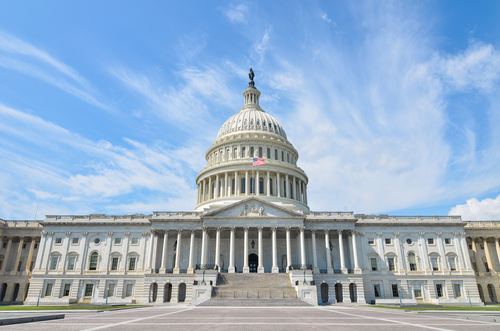More than 40 leading financial and banking industry groups are urging Congress not to move forward with a proposal that would establish an expanded new tax information reporting regime.

The proposal, under consideration as a part of the reconciliation package, would directly impact most Americans and small businesses with an account at a financial institution, the groups said.
“This proposal, as described by the Department of Treasury, would require financial institutions and other providers of financial services to track and submit to the IRS information on the inflows and outflows of every account above a de minimis threshold of $600 during the year, including breakdowns for cash. While the stated goal of this vast data collection is to uncover tax dodging by the wealthy, this proposal is not remotely targeted to that purpose or that population,” the groups wrote in a Sept. 17 letter to Speaker of the House Nancy Pelosi (D-CA), Minority Leader Kevin McCarthy (R-CA) and members of the U.S. House of Representatives.
“In addition to the significant privacy concerns, it would create tremendous liability for all affected parties by requiring the collection of financial information for nearly every American without proper explanation of how the IRS will store, protect, and use this enormous trove of personal financial information. We believe that this program is costly for all parties, not fit for purpose, and loaded with potential for unintended and serious negative consequences,” the letter said.
It was signed by more than 40 associations including the Consumer Bankers Association (CBA), the American Bankers Association (ABA), the Independent Community Bankers of America (ICBA), and SIFMA, among others.
In addition, they said the new reporting regime would undermine efforts long underway to strengthen financial inclusion, especially among underserved populations.
“Privacy concerns are cited as one of the top reasons why individuals choose not to open financial accounts and participate in the financial system. This proposal would almost certainly undermine efforts to reach vulnerable populations and unbanked households,” the letter said.
The groups also wrote that, “The American people feel strongly about their right to privacy, and it is not reasonable to undermine their financial privacy without a clearly articulated purpose.”